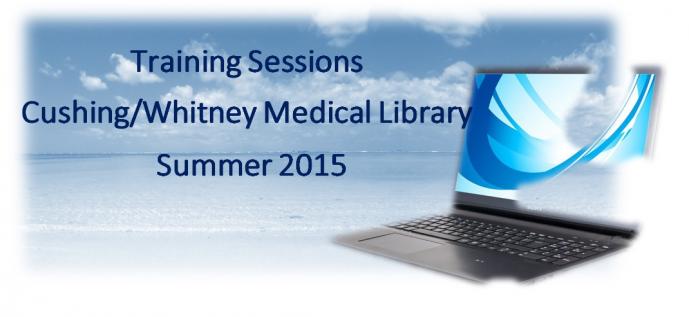
Introduction to Ingenuity Pathway Analysis
Description: What is IPA and what questions can it address?
- Overview of key features in IPA
- Ingenuity Knowledge Base
- Search & Pathway Building - Gene/ Chemical, Functions, Drug Targets
- Advanced Search: Limiting results to a molecule type, family or disease-association.
- Building pathways: Creating a pathway, pathway navigating, Using Build and Overlay tools
- Bioprofiler
- Dataset Analysis: Interpretation of Gene, Transcript, Protein and Metabolite Data
- Data Upload and Analysis: Uploading and formatting a dataset, setting analysis parameters and running an analysis
- Pathway Analysis and Canonical Pathways
- Downstream Effects Analysis and identifying downstream functions and processes that are likely affected
- Upstream regulators Analysis
- Causal Network Analysis and identifying likely root regulators
- Regulator Effects Analysis to link upstream regulators with downstream functions and processes that are affected
- Comparison analysis and comparing multiple observations
Date & Time: 9:00am - 12:00pm, Wednesday, July 15, 2015
Location: C-103 333 Cedar St, New Haven CT 06520
Campus: Medical School
Presenter: Dr. Kate Wendelsdorf, Applied Advanced Genomics, QIAGEN Informatics
Advance Ingenuity Pathway Training: Integrated Analysis and Interpretation of Variant and Gene Expression Data from Breast Cancer Subtypes
Methods that jointly interpret genomes and transcriptome data from disease case samples may be able to identify disease-specific factors and pathogenicity mechanisms that may not be observable on a single data type. These insights can then be used create more effective screenings or treatments.
Here we show how jointly analyzing tumor-specific genotypes and gene expression can indicate medically important differences among tumor subtypes. Pairing two tools from Ingenuity® Systems – Variant Analysis (for interpreting human genome data) and IPA® (for transcriptome data) – we trace differences between breast tumors that spread quickly (Claudin-low) versus slowly (luminal) to sequence variation that likely governs Epithelial-to-Mesenchymal Transition (EMT).
Variant Analysis was used to filter genomic variants in RNA seq data to a shortlist of those plausibly involved in driving tumor spread. IPA is then used to leverage gene expression patterns from the same dataset to identify molecular pathways involved in the metastatic phenotype of Claudin-low breast cancers. The seminar will demonstrate how using a combination of IPA features and QIAGEN tools can provide insight in to phenotype-causing pathways for experimental follow-up and hypothesis testing.
Date & Time: 1:00pm - 4:00pm, Wednesday, July 15, 2015
Location: C-103 333 Cedar St, New Haven CT 06520
Campus: Medical School
Presenter: Dr. Wendelsdorf- QUIAGEN
Category: Bioinformatics
Managing your References with EndNote
Description: EndNote is a citation-management software application that makes saving citations and then citing them within documents easy. EndNote's pre-formatted style templates, specific to journal instructions, make it easy to insert references into your papers as you write them. In this class you will learn how to easily add citations into your EndNote library, attach PDFs, and insert references into your research papers.
Date & Time: 2:00pm - 3:00pm, Wednesday, July 29, 2015
Location: Medical Library, Room 103 TCC, 333 Cedar St, New Haven CT 06520
Campus: Medical School
Presenter: Denise Hersey
Category: Reference Management Systems
Give your PubMed Skills a Tune Up
Description: PubMed is one of the most comprehensive resources for searching the biomedical literature. Most researchers have used it one time or another, but it may be time to brush up on your search skills to ensure that you have a relevant set of results. In this class, we will go over PubMed search techniques, including how to quickly limit a search and the role of Medical Subject Headings (MeSH) in creating more effective searches. Participants will also learn time-saving features such as saving searches and how to link out to full-text.
Date & Time: 6:00pm - 7:00pm, Wednesday, July 29, 2015
Location: Medical Library, Room 103 TCC, 333 Cedar St, New Haven CT 06520
Campus: Medical School
Presenter: Melissa Funaro
Category: Reference Management Systems
Webinar: Introduction to Cytoscape: network visualization software
Description: Cytoscape, an open source molecular interactions visualization tool, allows the exploration of molecular interactions and biological pathways and integrates these networks with annotations, gene expression profiles, and other data. This webinar will provide an introduction to some of the core functionality of Cytoscape, including the loading and manipulation of experimental data. For example, you will learn how to change visual properties to easily distinguish biologically significant relationships. Many additional features and advanced analyses are available through Cytoscape’s extensive list of apps. Examples of apps are MetScape (allows for visualizing and interpreting metabolomic data), Reactome FI (Reactome Functional Interaction and pathway enrichment tool), and BiNGO (Gene Ontology Tool).
Date & Time: 11:30am - 12:30pm, Tuesday, August 11, 2015
Location: Medical Library, Large Conference Room 101A, 333 Cedar St, New Haven CT 06520
Campus: Medical School
Presenter: Marci Brandenburg, Bioinformationist, Taubman Health Sciences Library, University of Michigan
Category: Bioinformatics